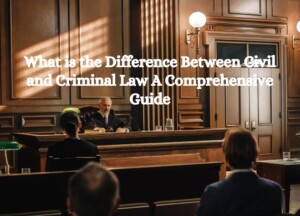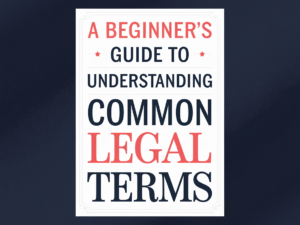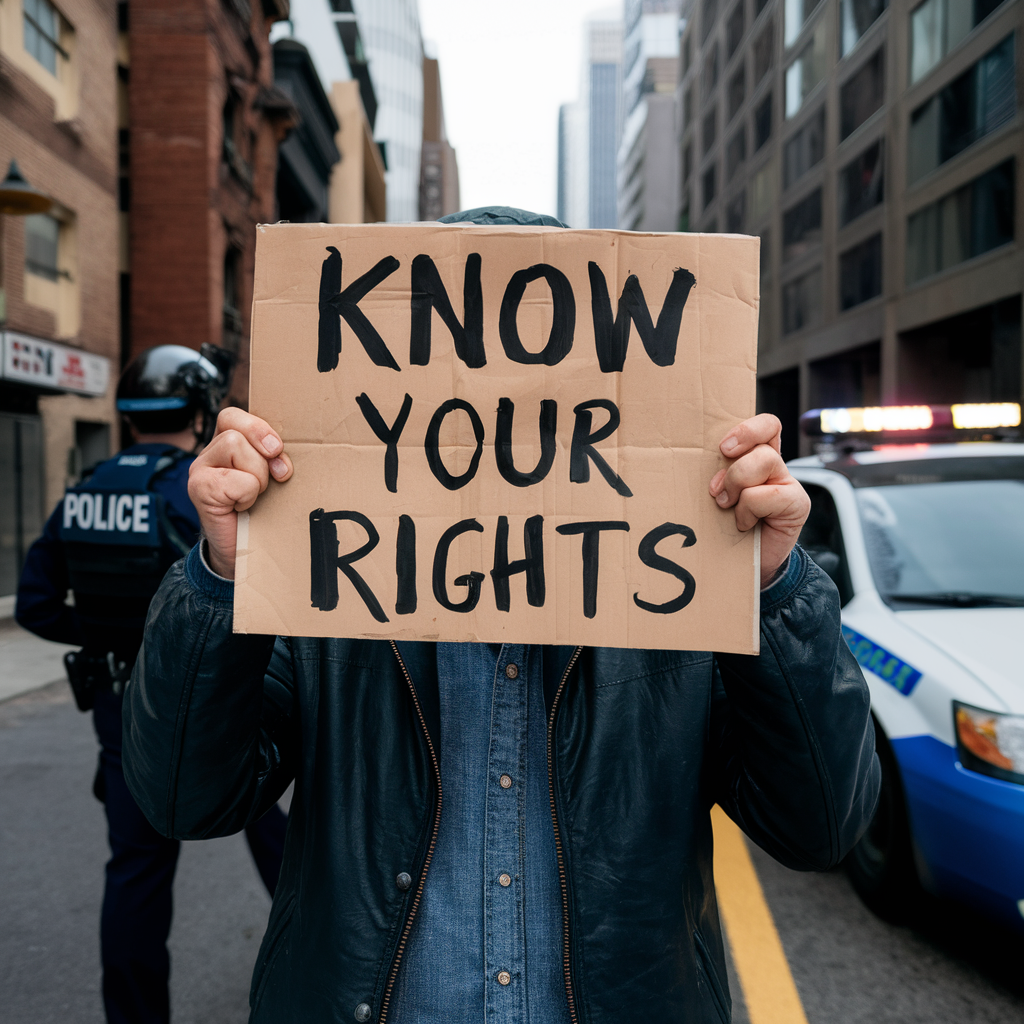
Why Knowing Your Rights Is Crucial
Understanding your rights during a police stop is essential for ensuring your safety and protecting your legal interests. In the United States, encounters with law enforcement can be stressful and intimidating, but being informed about your rights can make a significant difference in how the situation unfolds.
Knowing what to do and how to behave when stopped by the police helps prevent unnecessary escalation and ensures that both you and the officers remain safe. This article will guide you through the essential steps to take if you’re stopped by the police, from staying calm and composed to understanding your legal rights and using tools like a dash cam to document the encounter.
Throughout this guide, we’ll provide practical advice and legal insights to help you navigate these interactions confidently. Remember, the goal is to handle the situation in a way that protects your rights while maintaining a respectful and cooperative attitude.
Let’s begin by exploring a step-by-step guide on what to do if you’re stopped by the police.
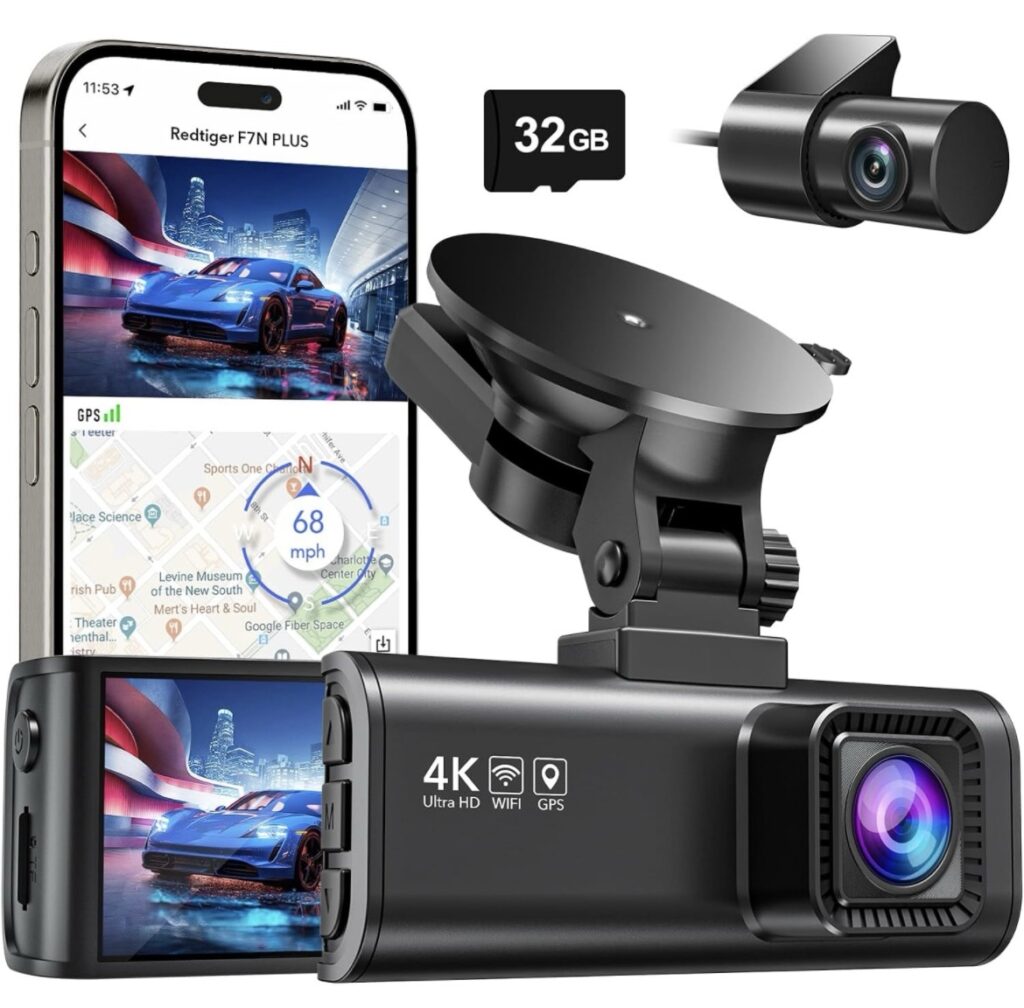
What to Do If You’re Stopped by the Police: A Step-by-Step Guide
Being stopped by the police can be a nerve-wracking experience, but knowing what to do can help you stay calm and handle the situation effectively. Here’s a step-by-step guide on how to manage a police stop safely.
Immediate Actions to Take When Pulled Over
- Pull Over Safely: As soon as you see the police lights or hear the siren, signal that you are pulling over. Find a safe spot to stop, preferably on the right side of the road. Slow down and pull over as soon as it is safe to do so.
- Turn Off the Engine: Once you have safely pulled over, turn off your engine. This action shows the officer that you are not planning to flee and that you are cooperative.
- Stay Inside the Vehicle: Unless instructed otherwise by the officer, remain inside your vehicle. Keep your hands visible on the steering wheel to show that you are not a threat.
- Be Ready with Documents: Have your driver’s license, vehicle registration, and proof of insurance ready. Avoid reaching for them until the officer requests them, as sudden movements can be misinterpreted.
How to Safely Pull Over and Position Your Car
- Choose a Well-Lit Area: If it is dark, try to pull over in a well-lit area. This can help both you and the officer feel safer during the interaction.
- Roll Down Your Window: Roll down your driver’s side window to communicate with the officer. If it’s nighttime, turn on your interior lights to help the officer see inside your car.
- Remain Calm and Polite: Address the officer politely and follow their instructions. Use a calm and respectful tone to avoid escalating the situation.
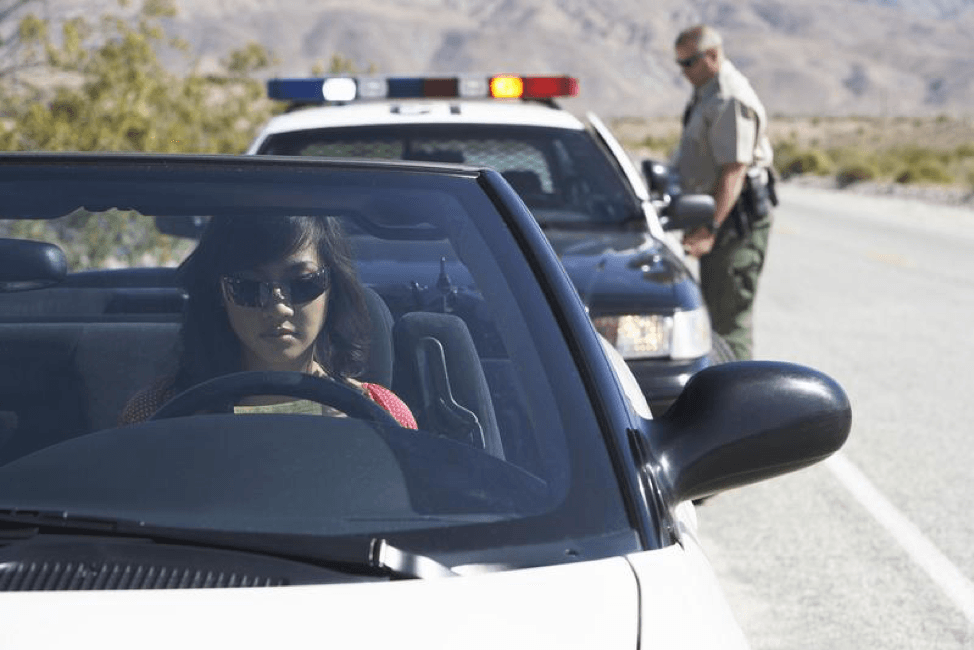
How to Stay Calm and Composed During a Police Stop
Remaining calm and composed during a police stop is crucial for ensuring your safety and facilitating a smooth interaction. Here are some tips for managing anxiety and stress during such encounters.
Tips for Managing Anxiety and Stress
- Deep Breathing: Take slow, deep breaths to help calm your nerves. Focus on your breathing to reduce anxiety and maintain a clear head.
- Positive Self-Talk: Remind yourself that staying calm is in your best interest. Positive affirmations can help keep your emotions in check.
- Know Your Rights: Being informed about your legal rights can give you confidence and reduce fear. Understanding what you can and cannot do during a police stop helps you feel more in control.
Importance of Clear and Respectful Communication
- Listen Carefully: Pay close attention to what the officer is saying and follow their instructions promptly. Misunderstanding or ignoring instructions can lead to unnecessary complications.
- Speak Clearly: When you respond to the officer, speak clearly and concisely. Avoid raising your voice or using aggressive language.
- Respectful Attitude: Maintaining a respectful attitude can significantly influence the interaction. Even if you feel the stop is unjustified, arguing with the officer on the spot is unlikely to help and can escalate the situation.
Using tools like a dash cam can also help document the encounter, providing an objective record of the events. Consider installing the REDTIGER Dash Cam Front Rear, 4K/2.5K Full HD Dash Camera for Cars to ensure you have video evidence of any police stops, which can be invaluable in protecting your rights.
Next, we’ll delve into understanding your rights during a police encounter and how to exercise them effectively.

Understanding Your Rights During a Police Encounter
Knowing your rights during a police stop is essential for protecting yourself and ensuring the interaction goes smoothly. Here are the key legal rights you should be aware of, especially your Fourth Amendment protections against unreasonable searches and seizures.
Key Legal Rights You Should Know
- Right to Remain Silent: You have the right to remain silent. You do not have to answer questions about where you are going, where you are coming from, or other personal details. Politely say, “I am exercising my right to remain silent.”
- Right to Refuse a Search: Unless the police have a warrant, probable cause, or your consent, they cannot search your vehicle. If an officer asks to search your car, you can calmly say, “I do not consent to a search.”
- Right to Know the Reason for the Stop: You have the right to ask the officer why you are being stopped. Politely ask, “May I ask why I am being stopped?”
- Right to Record the Encounter: You have the right to record the interaction with the police, as long as you do not interfere with their duties. Using a dash cam like the REDTIGER Dash Cam Front Rear, 4K/2.5K Full HD Dash Camera for Cars is a great way to document the encounter without being obtrusive.
Fourth Amendment Protections Against Unreasonable Searches and Seizures
The Fourth Amendment of the U.S. Constitution protects you from unreasonable searches and seizures by the government. This means that law enforcement officers need a valid reason to stop you and search your vehicle.
- Probable Cause: An officer must have probable cause to believe that you have committed a crime or have contraband in your vehicle to conduct a search without your consent.
- Search Warrants: In most cases, police need a search warrant to search your vehicle or property. The warrant must be specific about the area to be searched and the items being sought.
- Consent Searches: If you consent to a search, the officer does not need a warrant or probable cause. It’s crucial to understand that you have the right to refuse consent without facing legal consequences.
For more detailed information on legal rights and protections, you can explore Understanding Living Wills: Your Guide to Making Informed Decisions.

Should You Consent to a Police Search? Know the Facts
Deciding whether to consent to a police search can be challenging, especially under pressure. Here’s what you need to know about your rights and the implications of consenting to a search.
When and Why You Might Refuse a Search
- Lack of Probable Cause: If the officer does not have probable cause or a warrant, you have the right to refuse a search. Consenting to a search gives the officer permission to look through your vehicle or belongings without a valid reason.
- Protecting Your Privacy: Refusing a search helps protect your privacy. You do not have to allow law enforcement to invade your personal space without a legitimate reason.
- Avoiding Self-Incrimination: Anything found during a search can be used against you in court. Refusing a search minimizes the risk of inadvertently incriminating yourself.
Legal Implications of Consenting to a Search
- Waiving Your Rights: By consenting to a search, you waive your Fourth Amendment rights. This means that you are giving up your protection against unreasonable searches and seizures.
- Evidence in Court: Any evidence found during a consensual search can be used in court. Even if you believe you have nothing to hide, it’s generally best to refuse consent.
- Verbal and Written Consent: Officers may ask for verbal or written consent. Always be clear and polite when refusing a search, saying something like, “I do not consent to a search.”
For strategies on how to navigate complex legal situations, check out Legal Loopholes: How to Outsmart the System and Win Your Case.
By understanding these rights and knowing when to assert them, you can better protect yourself during police encounters. Next, we’ll cover what to say and what not to say to the police to ensure the interaction remains respectful and within your legal rights.
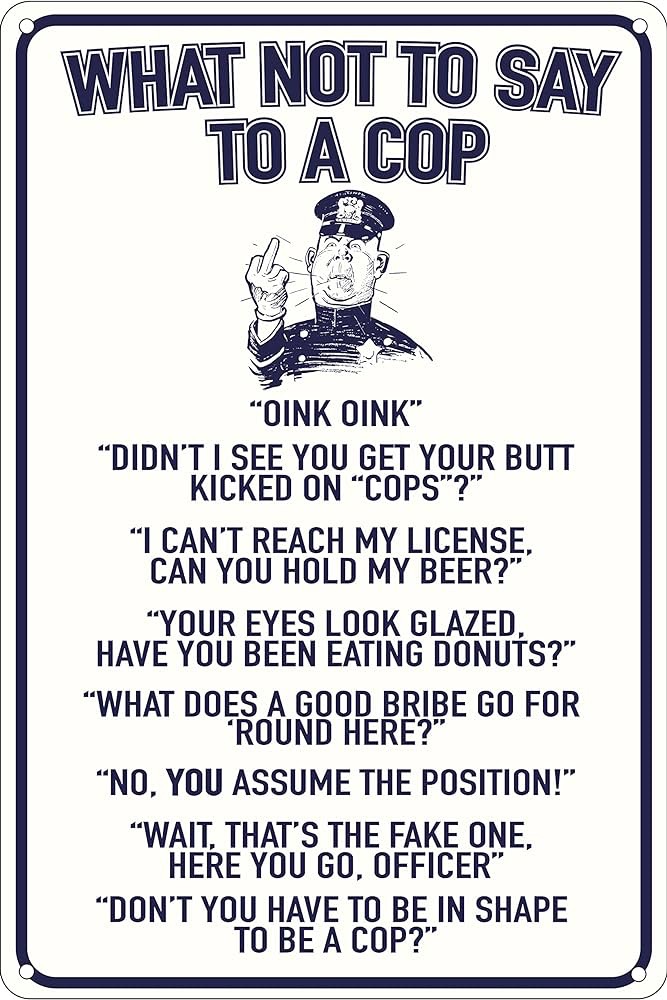
What to Say and What Not to Say to the Police
Communicating effectively with the police during a stop can significantly impact the outcome of the interaction. Knowing what to say and what to avoid can help you stay safe and protect your rights.
Effective Communication Strategies
- Be Polite and Respectful: Always address the officer with respect. Use “sir” or “ma’am” and maintain a calm tone of voice. Respectful communication can help de-escalate potential tension.
- Use Simple, Clear Language: Answer questions with simple, clear responses. Avoid giving long explanations or unsolicited information.
- Assert Your Rights Calmly: If you choose to assert your rights, do so calmly. For example, you might say, “I’m exercising my right to remain silent,” or “I do not consent to a search.”
- Ask for Clarification: If you don’t understand something the officer says, politely ask for clarification. This can prevent misunderstandings and ensure you comply correctly.
Phrases to Avoid and Why
- “I Didn’t Do Anything Wrong”: While it’s natural to want to assert your innocence, this statement can come across as confrontational. Instead, focus on cooperating and asserting your rights calmly.
- “Why Are You Stopping Me?”: Although it’s important to know the reason for the stop, asking aggressively can escalate the situation. Instead, ask politely, “May I ask why I am being stopped?”
- Admitting Fault or Guilt: Avoid making statements that could be interpreted as an admission of guilt, such as “I’m sorry, I didn’t mean to speed.” Anything you say can be used against you in court.
- Volunteering Excessive Information: Provide only the necessary information. Over-sharing can lead to unintended consequences or give the officer more reasons to investigate.
For some interesting insights into unusual laws and how they might come up in different situations, take a look at Top 9 Strangest Laws Globally: Believe It or Not.

Your Right to Remain Silent: When and How to Use It
The right to remain silent is a powerful legal protection that can help you avoid self-incrimination during a police stop. Understanding when and how to use this right is crucial.
Explanation of Miranda Rights
- Miranda Warning: When you are taken into police custody and before being interrogated, officers must inform you of your Miranda rights. This includes the right to remain silent and the right to an attorney.
- Protection Against Self-Incrimination: The right to remain silent protects you from being compelled to testify against yourself. Anything you say can be used as evidence in court, so it’s often best to say as little as possible.
- When Miranda Applies: Miranda rights apply once you are in custody. However, it’s good practice to exercise your right to remain silent even during a traffic stop or casual police encounter.
How and When to Assert Your Right to Remain Silent
- Clearly State Your Intentions: If you choose to remain silent, clearly state this to the officer. You can say, “I am exercising my right to remain silent.”
- Consistent Silence: Once you assert your right to remain silent, remain consistent. Do not answer further questions or engage in conversation, except to request an attorney if needed.
- Requesting Legal Counsel: If you are detained or arrested, you also have the right to request an attorney. Clearly state, “I would like to speak to an attorney.”
- Documenting the Encounter: Using a dash cam like the REDTIGER Dash Cam Front Rear, 4K/2.5K Full HD Dash Camera for Cars can help ensure that your exercise of rights is recorded accurately, providing a clear account of the interaction.
By understanding and exercising your right to remain silent, you can protect yourself from self-incrimination and ensure that your legal rights are upheld during police encounters.
Next, we’ll discuss the importance of documenting the encounter and how tools like a dash cam can be invaluable during police stops.
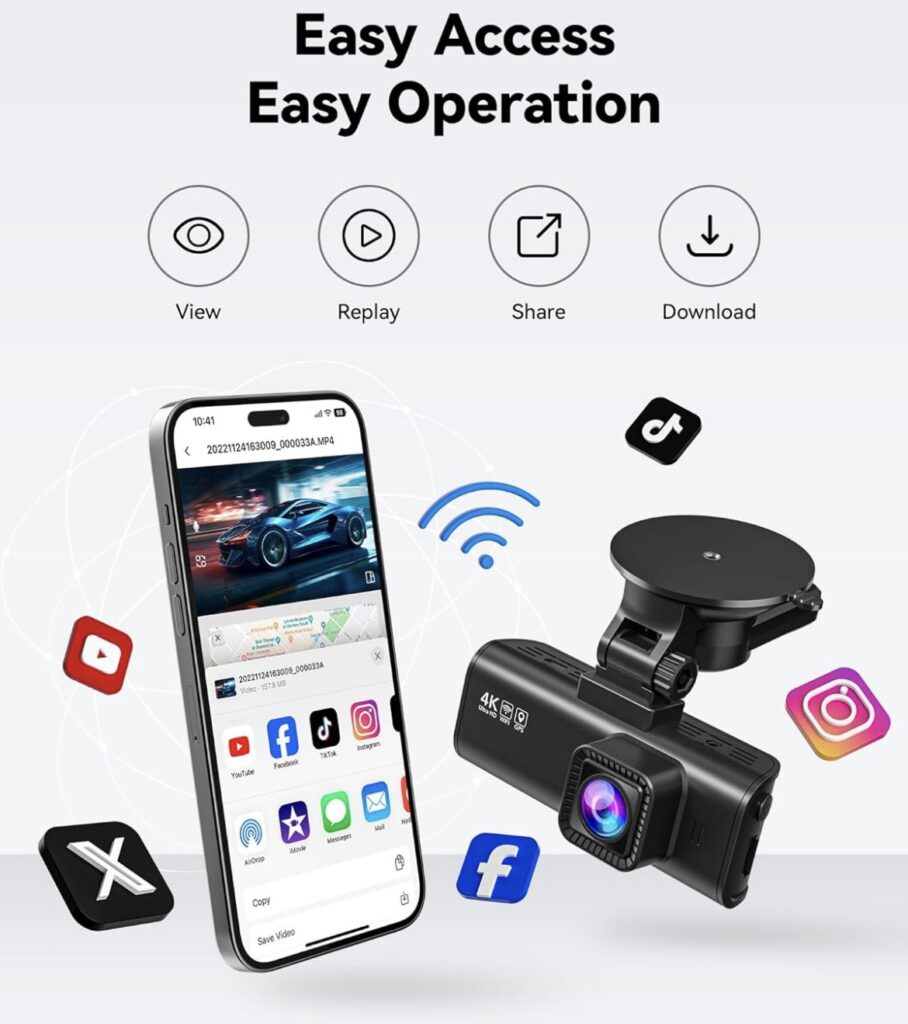
Documenting the Encounter: Why a Dash Cam Can Be Your Best Friend
Documenting your interaction with law enforcement during a stop can provide an objective record that protects both you and the officer. A dash cam is an invaluable tool for this purpose.
Benefits of Using a Car Dashboard Camera
- Objective Record: A dash cam provides an unbiased, accurate record of the events that transpire during a police stop. This can be crucial in disputes or legal proceedings.
- Evidence of Conduct: Footage from a dash cam can verify the behavior of both the officer and the driver, ensuring that proper procedures are followed.
- Deterrent to Misconduct: Knowing that their actions are being recorded can encourage all parties to behave appropriately and follow the law.
- Peace of Mind: Having a dash cam can give you confidence and peace of mind, knowing that you have a reliable witness to the encounter.
How to Properly Use and Position Your Dash Cam
- Positioning: Install your dash cam in a location that captures a clear view of the road and the interior of your car. The windshield or rearview mirror area is typically best.
- Regular Maintenance: Ensure your dash cam is functioning properly by checking it regularly. Clean the lens and make sure the camera is securely mounted.
- Recording Settings: Set your dash cam to record continuously and automatically save footage. This ensures that no critical moments are missed.
- Data Storage: Use a high-capacity memory card to store footage. Regularly back up important recordings to avoid losing them.
- Legal Considerations: Familiarize yourself with the laws regarding recording in your state. In most cases, recording interactions with police in public spaces is legal, but it’s good to be informed.
For a reliable and high-quality option, consider the REDTIGER Dash Cam Front Rear, 4K/2.5K Full HD Dash Camera for Cars. This model includes features such as built-in Wi-Fi, GPS, and night vision, ensuring comprehensive coverage of any police stop.
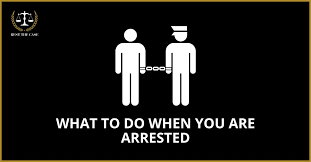
What to Do If You Are Arrested: Understanding the Process
If you are detained or arrested during a police stop, it’s crucial to know your rights and the proper steps to take to protect yourself.
Steps to Take If You Are Detained or Arrested
- Stay Calm and Composed: Remaining calm can help you think clearly and follow instructions properly. Do not resist arrest, even if you believe it is unjustified.
- Invoke Your Rights: Clearly state that you are invoking your right to remain silent and request an attorney. Say, “I am exercising my right to remain silent, and I would like to speak to an attorney.”
- Do Not Consent to Searches: If you are asked to consent to a search, politely refuse. Clearly state, “I do not consent to any searches.”
- Document the Arrest: If you have a dash cam like the REDTIGER Dash Cam, ensure it is recording. This footage can be critical in legal proceedings.
Ensuring Your Rights Are Upheld During an Arrest
- Request Legal Representation: Once you are in custody, you have the right to speak to an attorney. Do not discuss your case with anyone other than your lawyer.
- Avoid Self-Incrimination: Do not answer any questions or provide information beyond basic identification details. Anything you say can be used against you in court.
- Stay Informed: Ask for a copy of the charges against you and any paperwork related to your arrest. Understand the charges and follow your attorney’s advice closely.
- Follow Legal Procedures: Attend all court hearings and comply with legal procedures. Your attorney will guide you through the process and help build your defense.
For detailed guidance on navigating legal situations and finding the right legal support, check out State-by-State Guide: Legal Ages for Children to Stay Home Alone.
By knowing these steps and ensuring your rights are upheld, you can better navigate the challenging situation of being detained or arrested, protecting yourself and your legal interests.
Next, we’ll discuss how to find and choose the best attorney for your case, ensuring you have the legal support you need.
Finding Legal Help: How to Choose the Best Attorney for Your Case
Selecting the right attorney is crucial when you need legal representation, especially if you’ve been arrested or are facing serious charges. Here are some tips to help you find and choose the best attorney for your case.
Tips for Selecting a Qualified Attorney
- Research and Referrals: Start by researching attorneys in your area who specialize in the type of case you are dealing with. Ask friends, family, or colleagues for referrals to reputable lawyers they have worked with.
- Check Credentials: Verify the attorney’s credentials, including their education, experience, and any special certifications or memberships in professional organizations.
- Read Reviews: Look for online reviews and testimonials from previous clients. This can give you an idea of the attorney’s track record and reputation.
- Schedule Consultations: Meet with a few attorneys for an initial consultation. This will give you a chance to ask questions, discuss your case, and assess whether the attorney is a good fit for you.
- Evaluate Communication Skills: Choose an attorney who communicates clearly and listens to your concerns. Effective communication is key to a successful attorney-client relationship.
Questions to Ask Potential Lawyers
- Experience and Expertise: Ask about their experience handling cases similar to yours. How many years have they been practicing law, and what is their success rate in similar cases?
- Approach to Your Case: Discuss their strategy for handling your case. What are the potential outcomes, and how do they plan to achieve the best result for you?
- Fees and Costs: Inquire about their fee structure and any additional costs you might incur. Do they charge a flat fee, hourly rate, or contingency fee? Make sure you understand the financial commitment.
- Availability: Ensure the attorney has the time and resources to dedicate to your case. Will they be personally handling your case, or will it be delegated to other members of their team?
- Client References: Ask if they can provide references from previous clients. Speaking with former clients can provide valuable insights into the attorney’s effectiveness and client service.
For expert guidance on finding the right attorney, explore How to Choose the Best Attorney for Your Case: Expert Guidance Inside.

Common Myths About Police Stops Debunked
There are many misconceptions about what you should or shouldn’t do during a police stop. Here are some common myths debunked to help you stay informed and safe.
Addressing Common Misconceptions
- Myth: You Must Answer All Questions: You are not required to answer all questions posed by the police. You have the right to remain silent and should exercise this right to avoid self-incrimination.
- Myth: You Have to Consent to a Search: You are not obligated to consent to a search of your vehicle or property. Without a warrant, probable cause, or your consent, the police cannot conduct a search.
- Myth: Being Polite Means Giving Up Your Rights: Being respectful and polite does not mean you have to waive your rights. You can assert your rights calmly and respectfully without escalating the situation.
- Myth: Recording the Encounter is Illegal: In most states, it is legal to record interactions with the police as long as you do not interfere with their duties. A dash cam like the REDTIGER Dash Cam Front Rear, 4K/2.5K Full HD Dash Camera for Cars can provide valuable documentation of the stop.
Providing Factual Information to Clarify Legal Myths
- Fact: You Can Refuse a Search: You have the right to refuse a search without a warrant or probable cause. Clearly state, “I do not consent to a search.”
- Fact: You Have the Right to Remain Silent: You are not required to answer questions that could incriminate you. Politely state, “I am exercising my right to remain silent.”
- Fact: Recording is Your Right: Recording your interaction with the police is your right, as long as you do not obstruct their duties. Use a dash cam or your phone to document the encounter.
For additional tips and advice on navigating legal situations, check out Renting a Car? A Video Could Save You Thousands.
By understanding and debunking these common myths, you can approach police stops with confidence and ensure your rights are protected.
Next, we’ll conclude by summarizing key points and encouraging readers to stay informed and safe during police encounters.
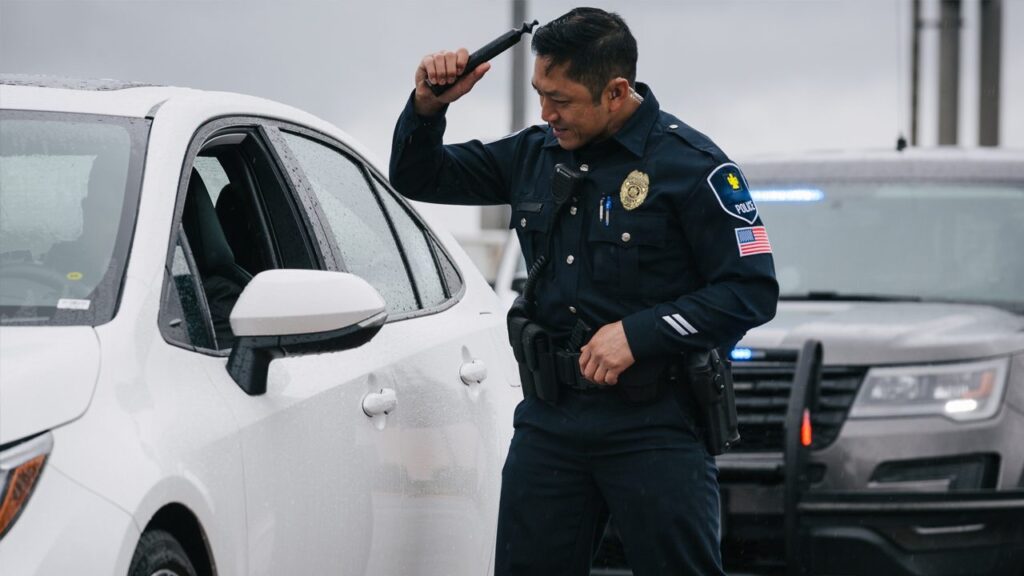
Stay Informed and Stay Safe
Understanding your rights and knowing how to handle police stops is crucial for ensuring your safety and protecting your legal interests. By staying informed and prepared, you can navigate these encounters with confidence and composure.
Recap of Key Points
- Immediate Actions During a Stop: When pulled over, safely pull to the side, turn off your engine, and keep your hands visible. Be polite and wait for the officer’s instructions.
- Staying Calm and Composed: Manage stress by taking deep breaths and using positive self-talk. Clear and respectful communication is essential.
- Knowing Your Rights: Familiarize yourself with your rights, including the right to remain silent, the right to refuse a search, and the right to record the encounter.
- Documenting the Encounter: Use a dash cam like the REDTIGER Dash Cam Front Rear, 4K/2.5K Full HD Dash Camera for Cars to provide an objective record of the stop, which can be crucial in legal proceedings.
- Handling Arrests: If arrested, stay calm, invoke your right to remain silent, and request an attorney. Do not consent to searches or provide more information than necessary.
- Finding Legal Help: Choose a qualified attorney by researching, checking credentials, and asking the right questions. Ensure they have experience with cases similar to yours.
- Debunking Myths: Be aware of common misconceptions about police stops and know the factual information to protect your rights.
Encouragement to Remain Calm and Informed
Encounters with law enforcement can be stressful, but staying calm and informed can make a significant difference. Always remember to:
- Assert Your Rights: Know and assert your legal rights respectfully and calmly.
- Document the Encounter: Use tools like dash cams to record the interaction.
- Seek Legal Advice: If needed, consult with a qualified attorney to ensure your rights are protected.
For additional resources and expert guidance on legal matters, explore these helpful links:
- Understanding Living Wills: Your Guide to Making Informed Decisions
- Legal Loopholes: How to Outsmart the System and Win Your Case
- Top 9 Strangest Laws Globally: Believe It or Not
- State-by-State Guide: Legal Ages for Children to Stay Home Alone
- How to Choose the Best Attorney for Your Case: Expert Guidance Inside
- Renting a Car? A Video Could Save You Thousands
By following the advice in this guide and staying informed, you can ensure that your interactions with law enforcement are safe and that your rights are protected. Stay vigilant, stay informed, and stay safe.
As an Amazon Associate we earn from qualifying purchases through some links in our articles.

